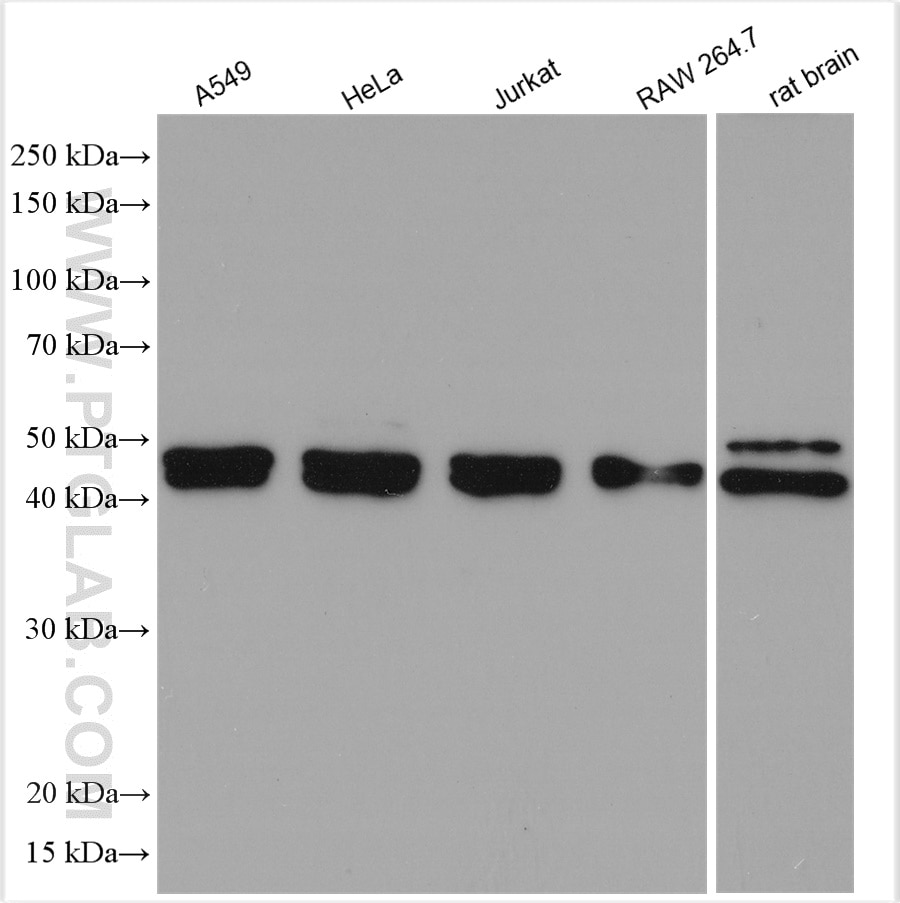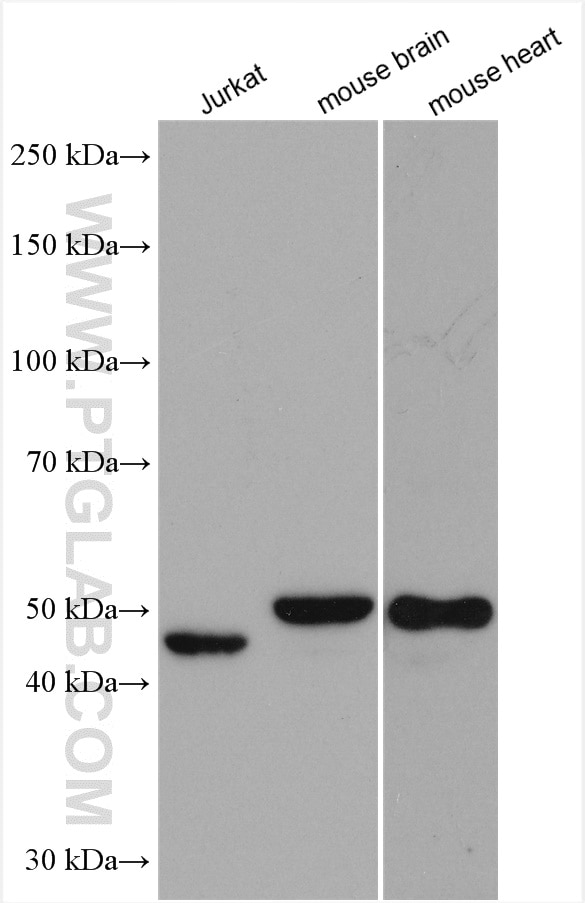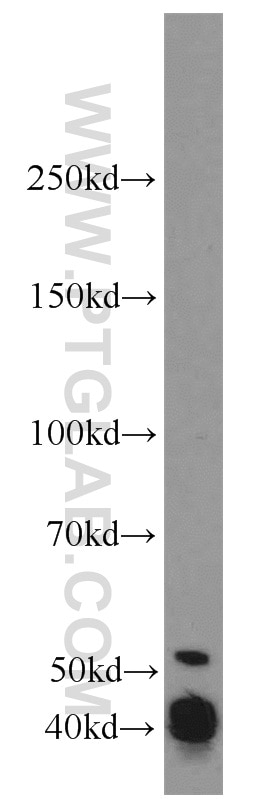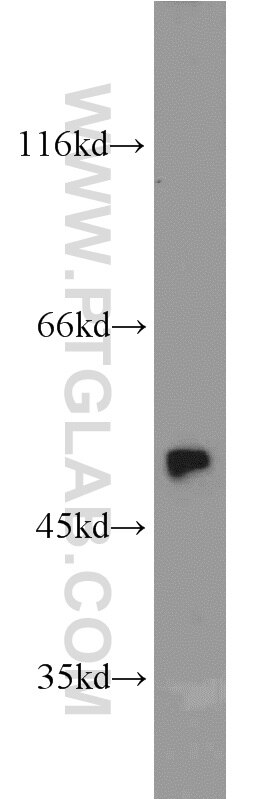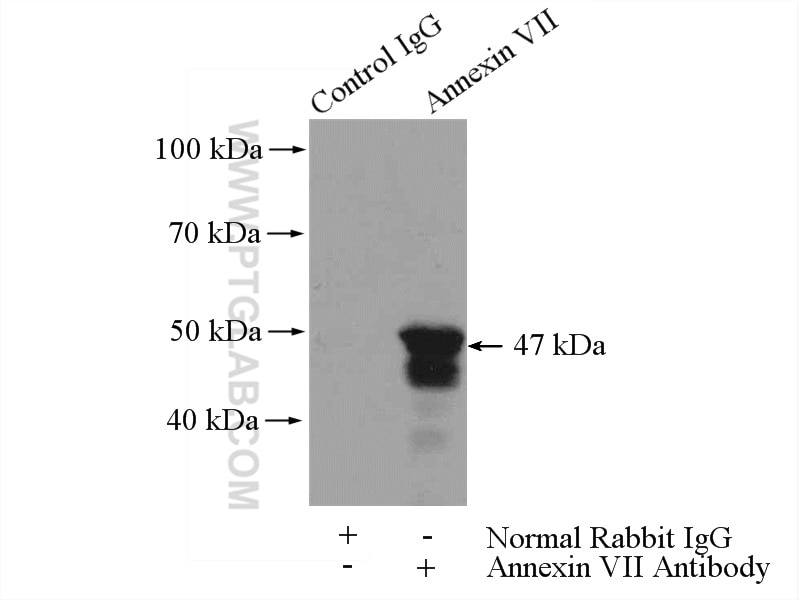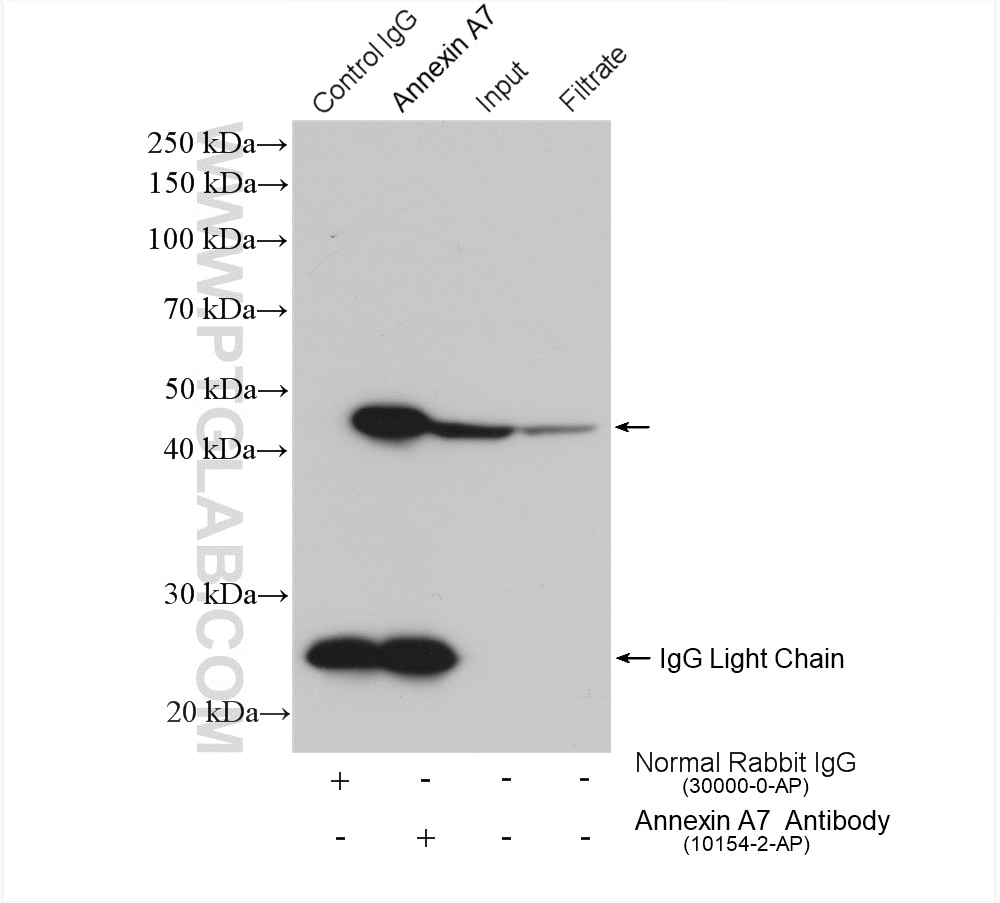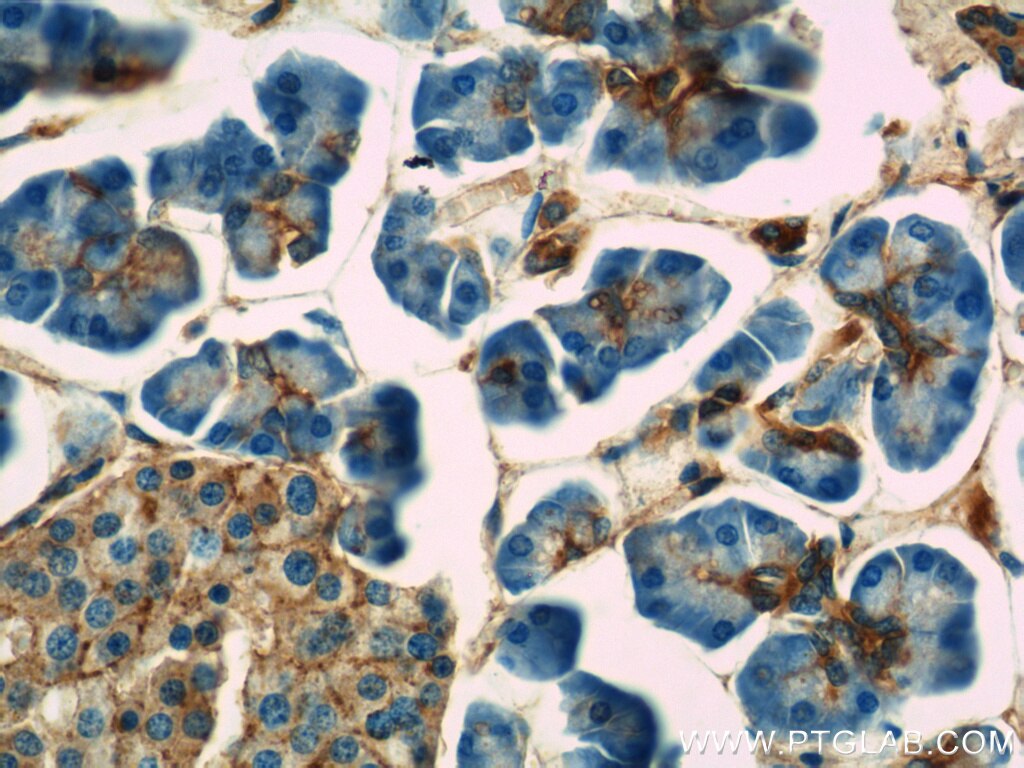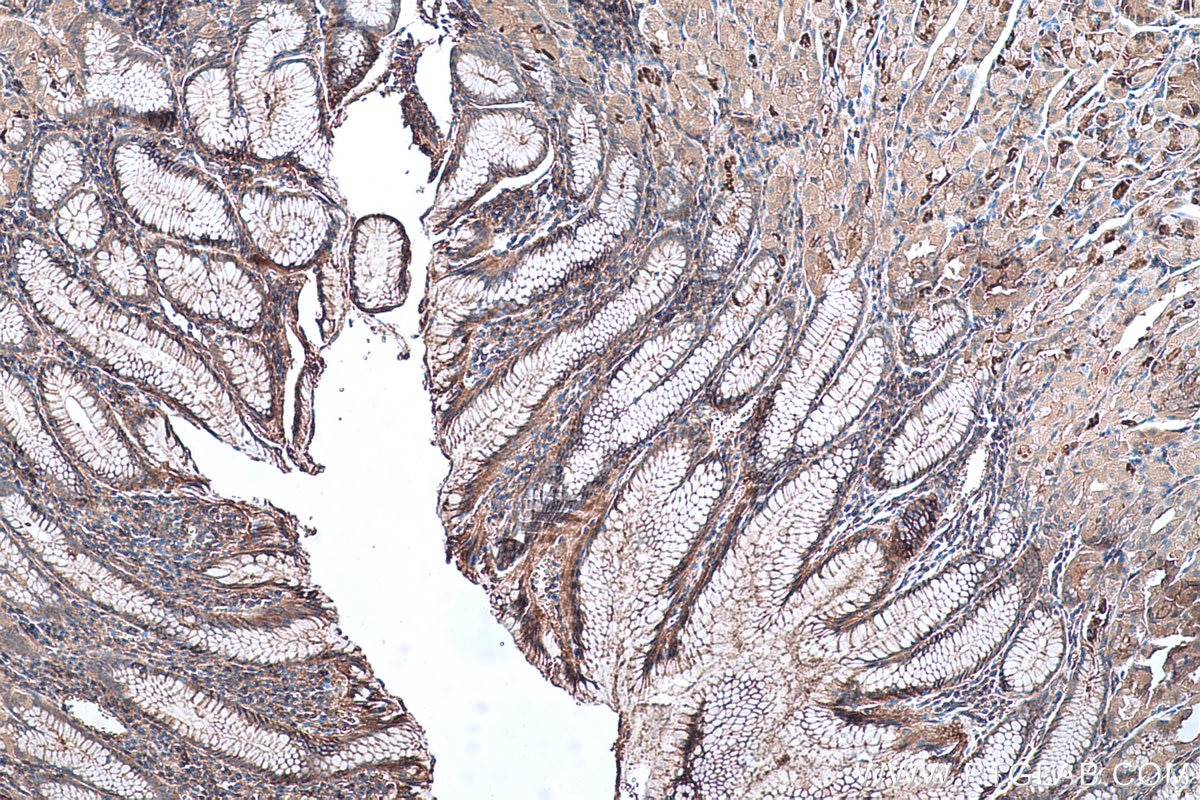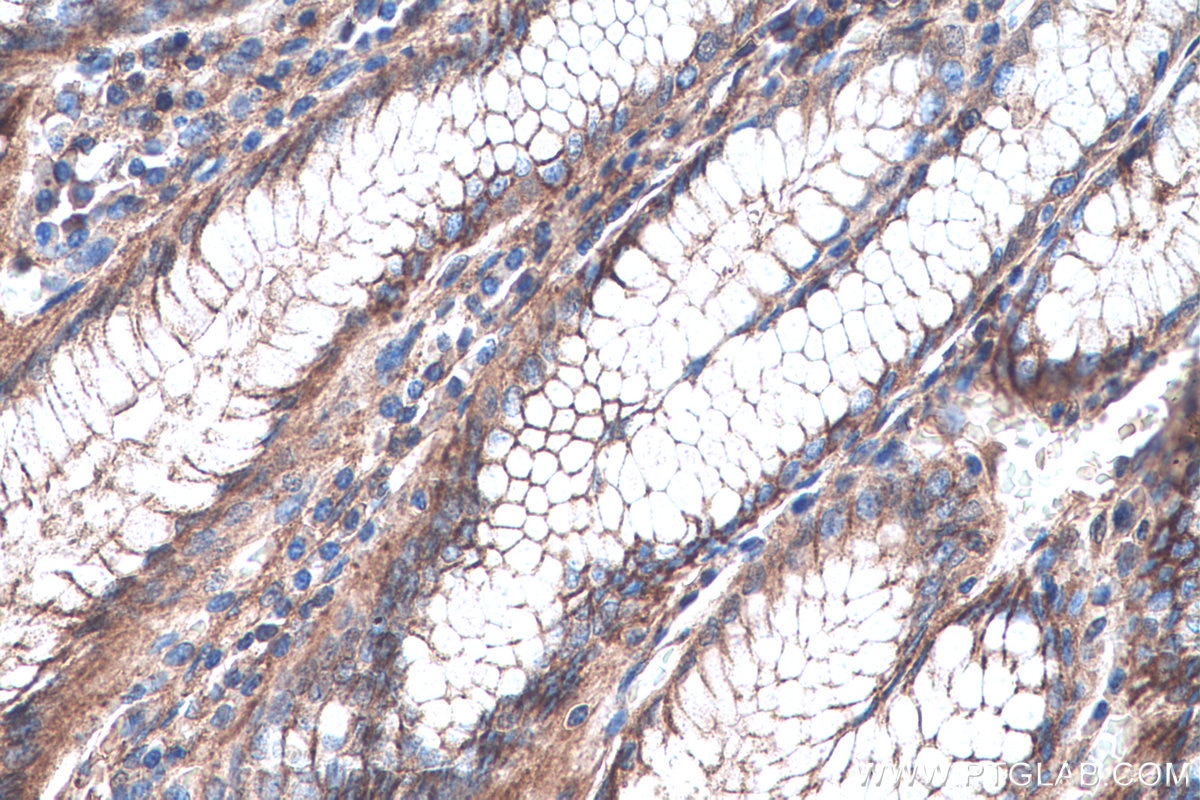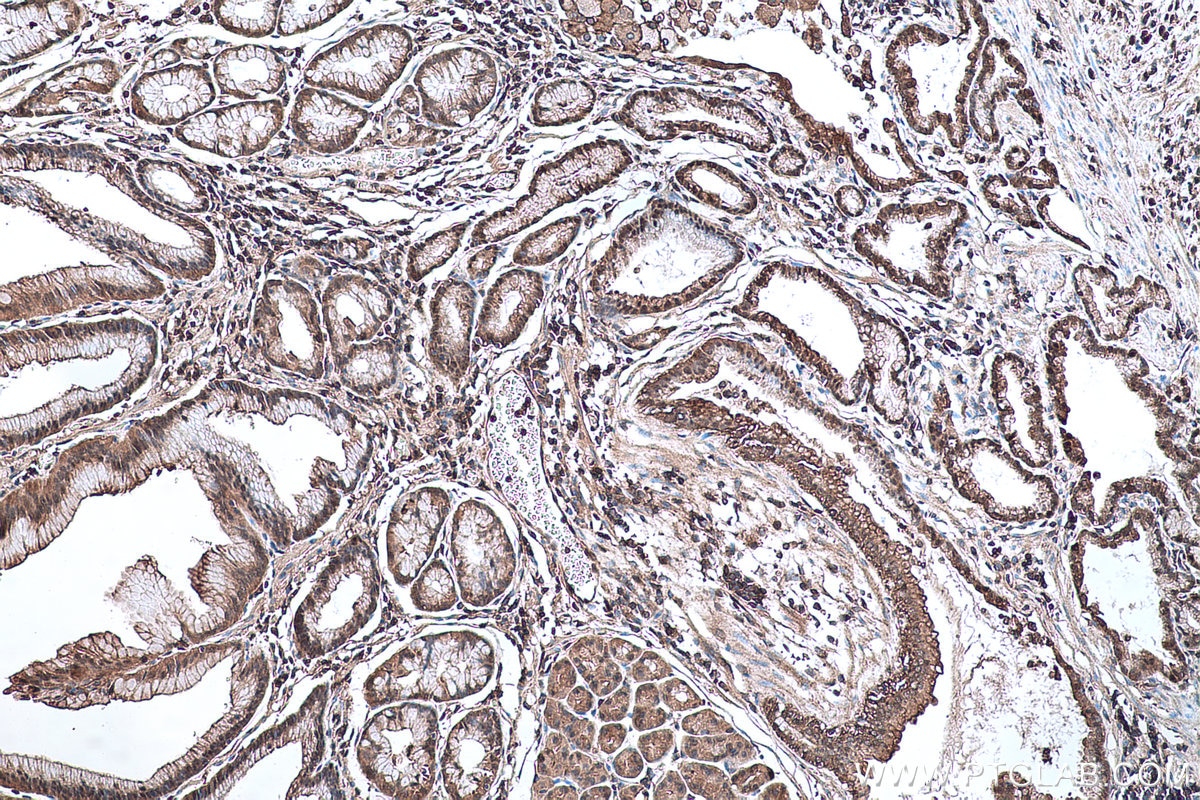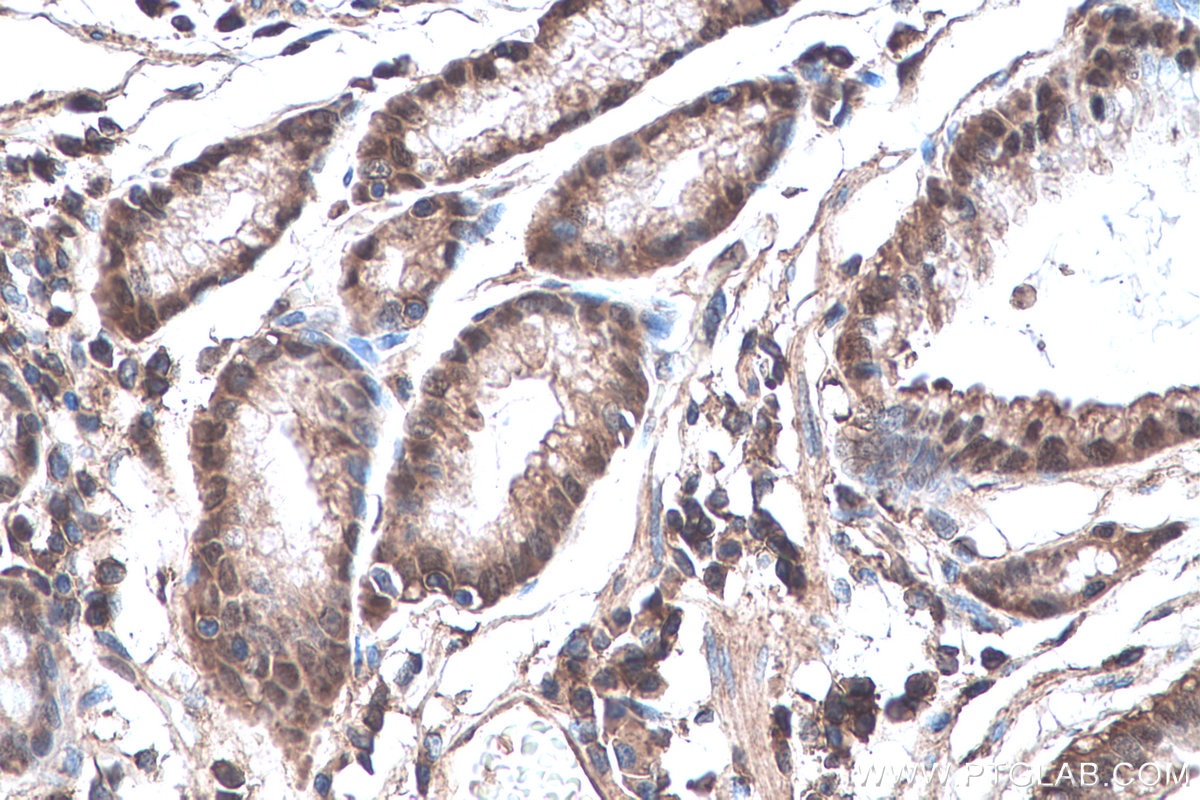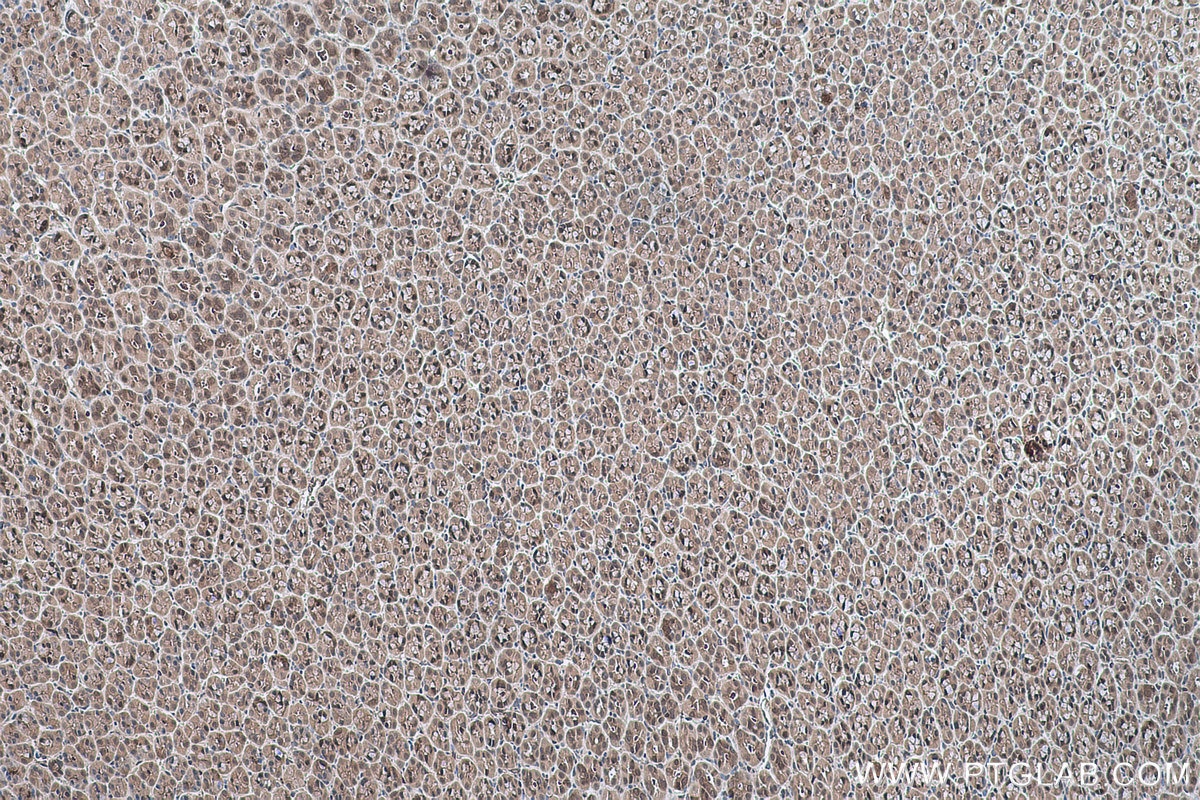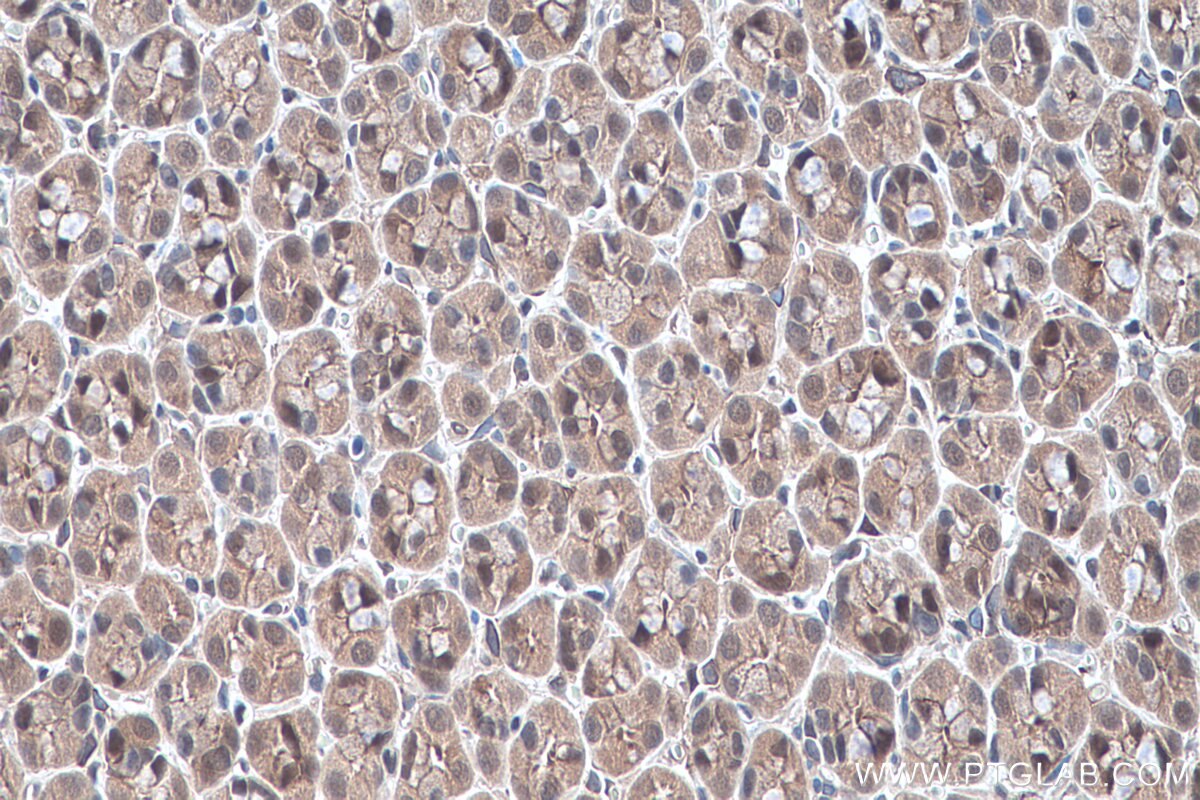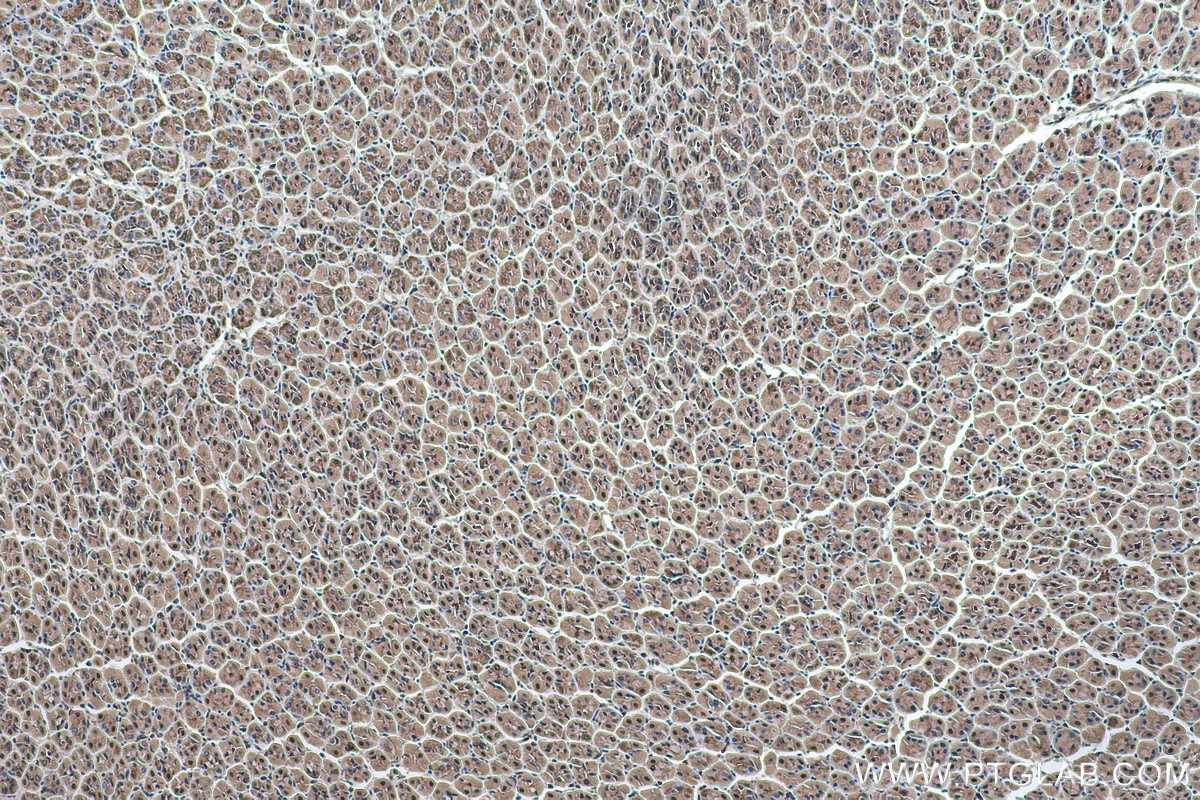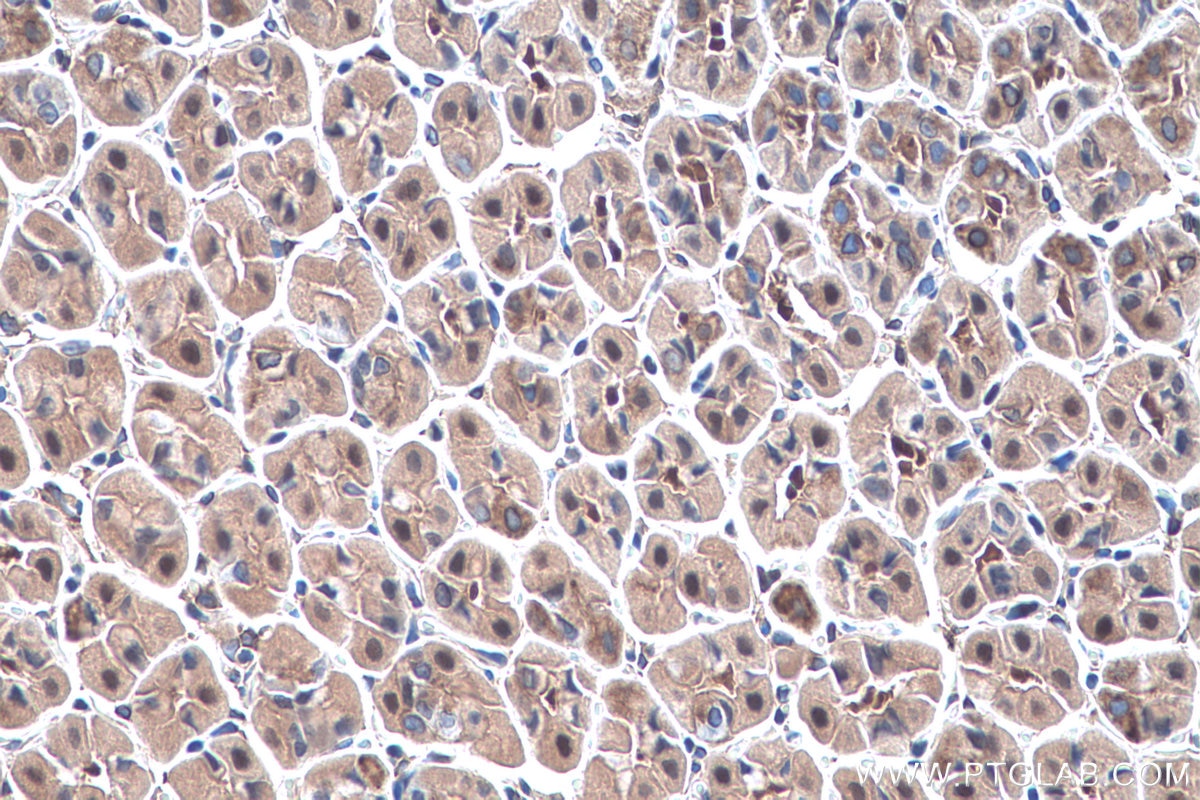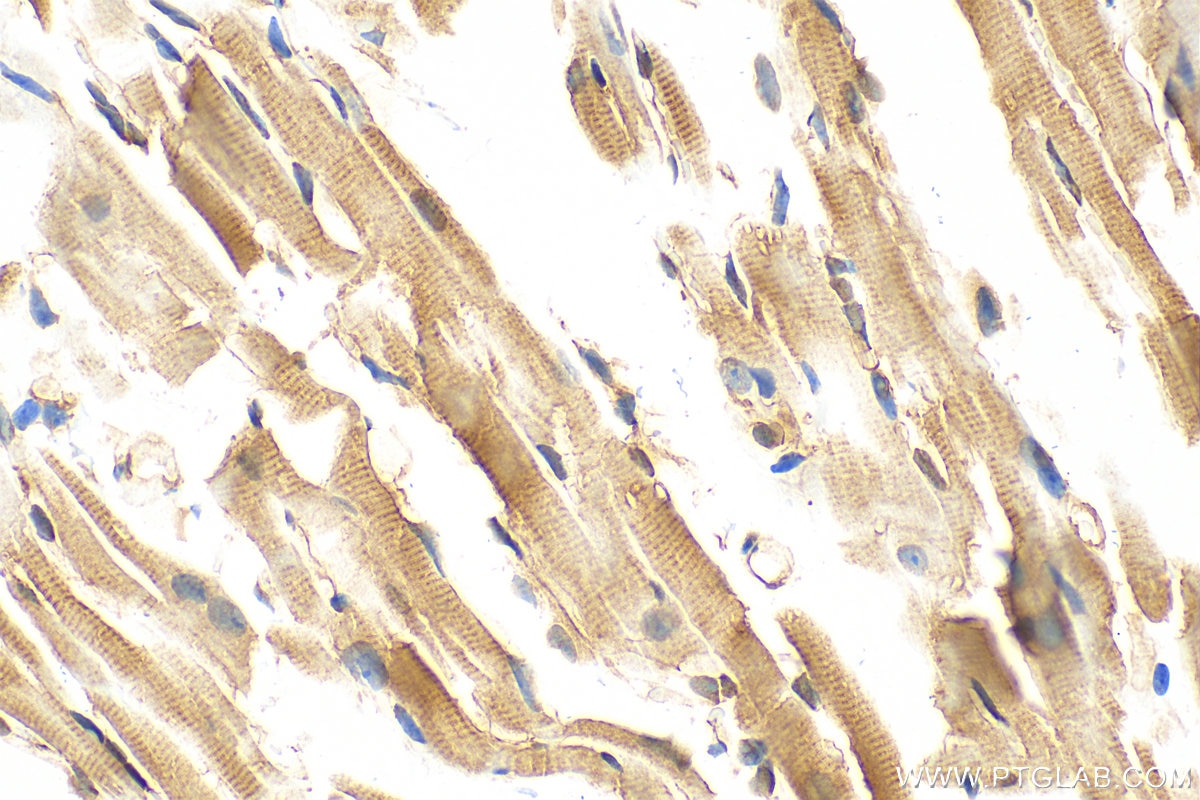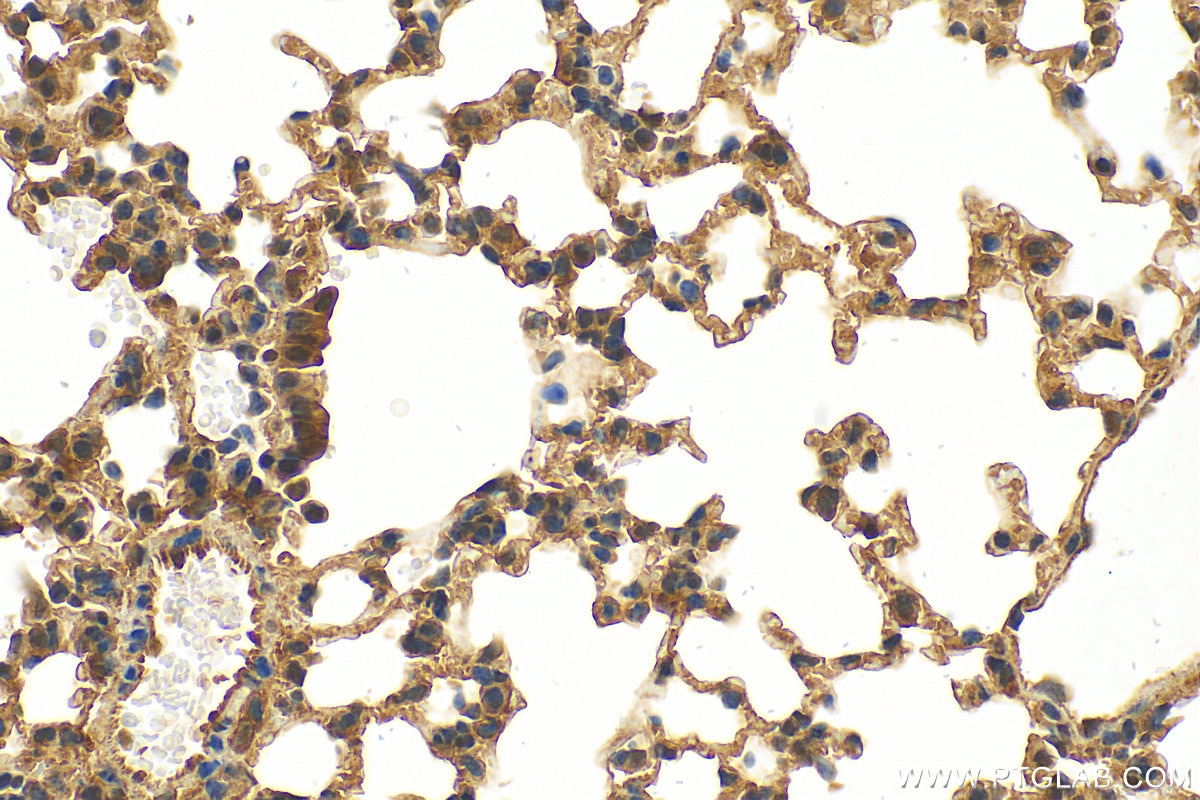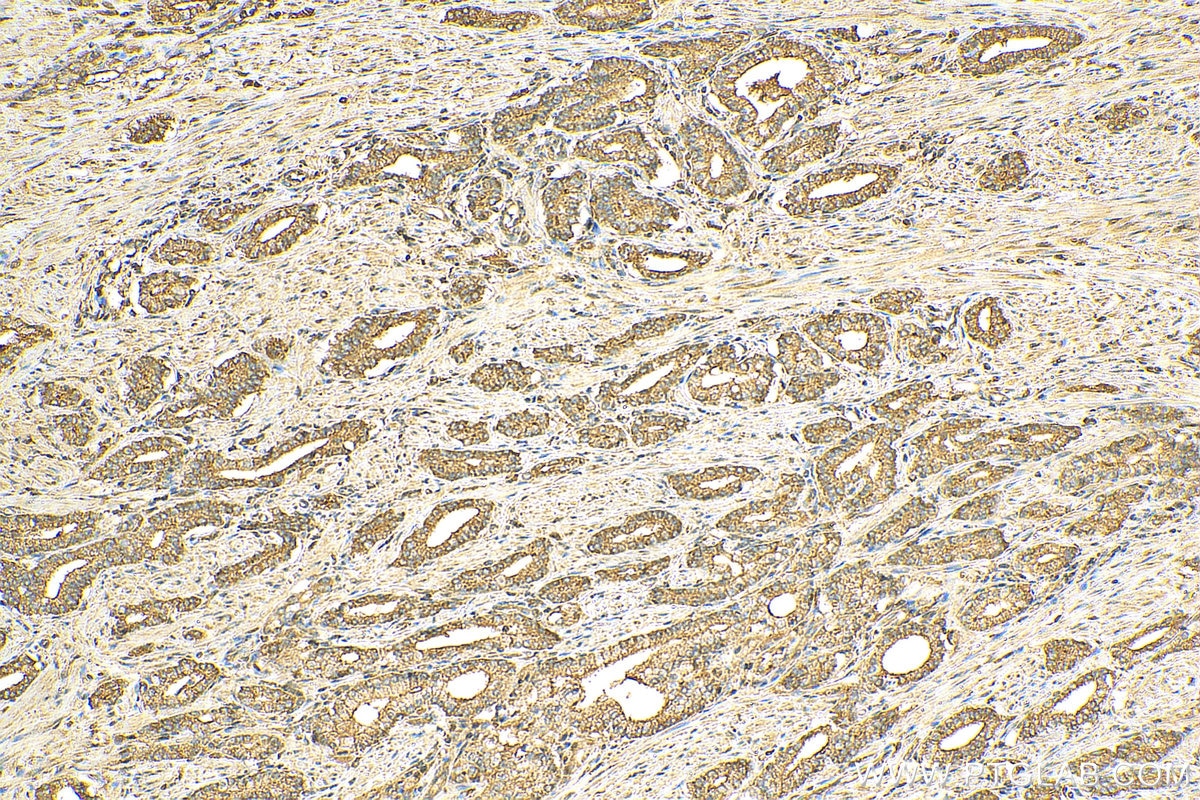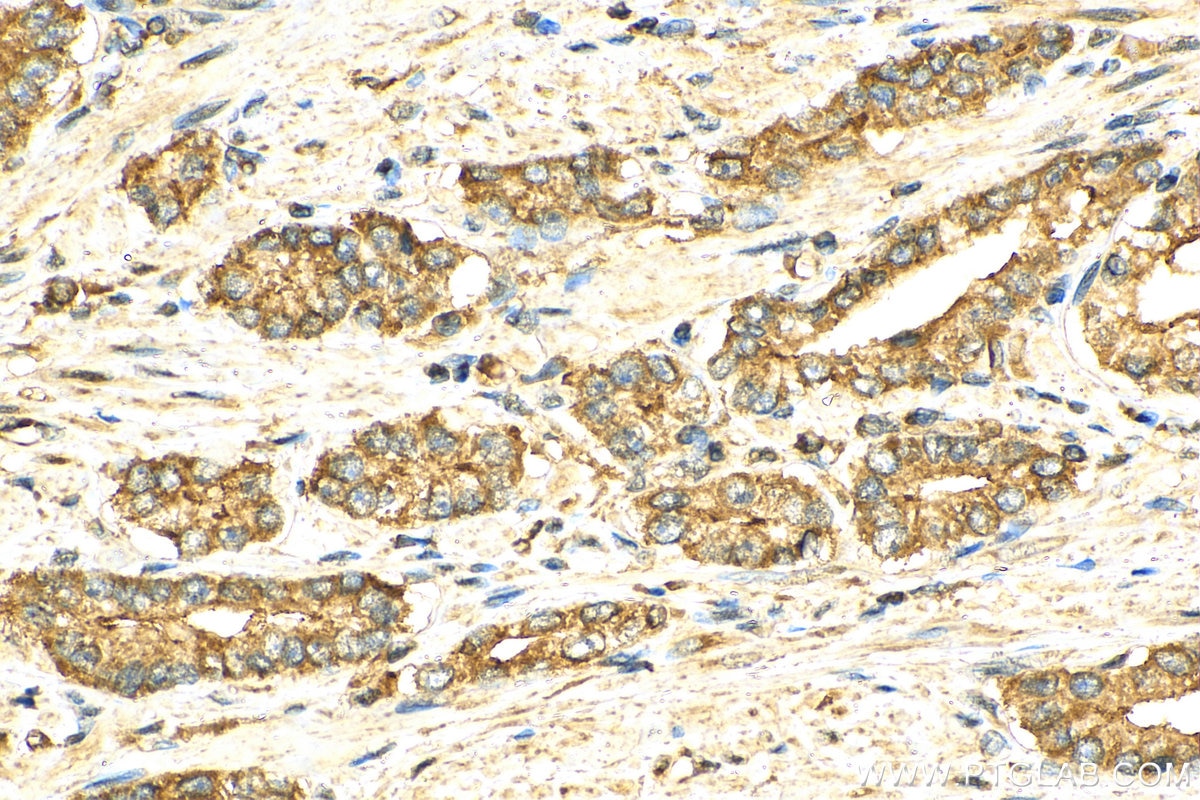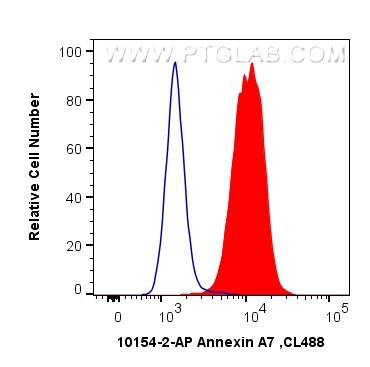Tested Applications
| Positive WB detected in | A549 cells, Jurkat cells, mouse lung tissue, L02 cells, mouse brain tissue, mouse heart tissue, HeLa cells, RAW 264.7 cells, rat brain tissue |
| Positive IP detected in | U-87 MG cells, mouse heart tissue |
| Positive IHC detected in | mouse heart tissue, human pancreas tissue, human prostate cancer tissue, human stomach tissue, human stomach cancer tissue, mouse stomach tissue, rat stomach tissue Note: suggested antigen retrieval with TE buffer pH 9.0; (*) Alternatively, antigen retrieval may be performed with citrate buffer pH 6.0 |
| Positive FC (Intra) detected in | SH-SY5Y cells |
Recommended dilution
| Application | Dilution |
|---|---|
| Western Blot (WB) | WB : 1:2000-1:16000 |
| Immunoprecipitation (IP) | IP : 0.5-4.0 ug for 1.0-3.0 mg of total protein lysate |
| Immunohistochemistry (IHC) | IHC : 1:200-1:800 |
| Flow Cytometry (FC) (INTRA) | FC (INTRA) : 0.40 ug per 10^6 cells in a 100 µl suspension |
| It is recommended that this reagent should be titrated in each testing system to obtain optimal results. | |
| Sample-dependent, Check data in validation data gallery. | |
Published Applications
| KD/KO | See 2 publications below |
| WB | See 10 publications below |
| IHC | See 4 publications below |
| IF | See 4 publications below |
| IP | See 1 publications below |
Product Information
10154-2-AP targets Annexin A7 in WB, IHC, IF, FC (Intra), IP, ELISA applications and shows reactivity with human, mouse, rat samples.
| Tested Reactivity | human, mouse, rat |
| Cited Reactivity | human, mouse |
| Host / Isotype | Rabbit / IgG |
| Class | Polyclonal |
| Type | Antibody |
| Immunogen |
CatNo: Ag0206 Product name: Recombinant human ANXA7 protein Source: e coli.-derived, PGEX-4T Tag: GST Domain: 236-466 aa of BC002632 Sequence: PTYYDAWSLRKAMQGAGTQERVLIEILCTRTNQEIREIVRCYQSEFGRDLEKDIRSDTSGHFERLLVSMCQGNRDENQSINHQMAQEDAQRLYQAGEGRLGTDESCFNMILATRSFPQLRATMEAYSRMANRDLLSSVSREFSGYVESGLKTILQCALNRPAFFAERLYYAMKGAGTDDSTLVRIVVTRSEIDLVQIKQMFAQMYQKTLGTMIAGDTSGDYRRLLLAIVGQ Predict reactive species |
| Full Name | annexin A7 |
| Calculated Molecular Weight | 50 kDa |
| Observed Molecular Weight | 47 kDa, 51 kDa |
| GenBank Accession Number | BC002632 |
| Gene Symbol | Annexin A7 |
| Gene ID (NCBI) | 310 |
| RRID | AB_2227386 |
| Conjugate | Unconjugated |
| Form | Liquid |
| Purification Method | Antigen affinity purification |
| UNIPROT ID | P20073 |
| Storage Buffer | PBS with 0.02% sodium azide and 50% glycerol, pH 7.3. |
| Storage Conditions | Store at -20°C. Stable for one year after shipment. Aliquoting is unnecessary for -20oC storage. 20ul sizes contain 0.1% BSA. |
Background Information
Annexin A7 (Anx7) belongs to a ubiquitous and relatively abundant family of Ca2+-dependent membrane-binding proteins, which are thought to be involved in multiple aspects of cell biology including membrane trafficking, mediation of cell-matrix interactions and membrane organization within cells. Anx7, migrated as a 50 kDa protein in SDS-PAGE, has been proposed to function in the fusion of vesicles, acting as a Ca++ channel and as Ca++ -activated GTPase, thus inducing Ca++ /GTP-dependent secretory events.
Protocols
| Product Specific Protocols | |
|---|---|
| FC protocol for Annexin A7 antibody 10154-2-AP | Download protocol |
| IHC protocol for Annexin A7 antibody 10154-2-AP | Download protocol |
| IP protocol for Annexin A7 antibody 10154-2-AP | Download protocol |
| WB protocol for Annexin A7 antibody 10154-2-AP | Download protocol |
| Standard Protocols | |
|---|---|
| Click here to view our Standard Protocols |
Publications
| Species | Application | Title |
|---|---|---|
Matrix Biol Proteome-wide and matrisome-specific atlas of the human ovary computes fertility biomarker candidates and open the way for precision oncofertility. | ||
Am J Physiol Endocrinol Metab Differential expression of the regulated catecholamine secretory pathway in different hereditary forms of pheochromocytoma. | ||
J Proteome Res Quantitative Mitochondrial Proteomics Reveals ANXA7 as a Crucial Factor in Mitophagy.
| ||
Am J Transl Res Downregulation of annexin A7 decreases proliferation, migration, and invasion of gastric cancer cells by reducing matrix metalloproteinase 1 and 9 expression. | ||
Biofactors Ezrin as a possible diagnostic and/or prognostic biomarker in mice lymphatic metastatic hepatocellular carcinoma in vivo. | ||
FEBS Lett Annexins A1 and A2 are recruited to larger lysosomal injuries independently of ESCRTs to promote repair. |

